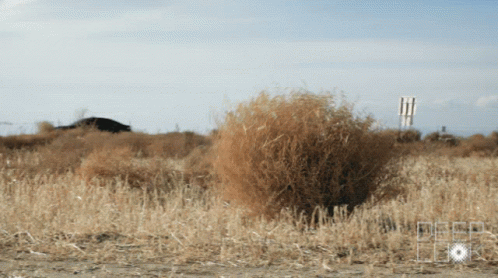so a common claim I see made is that arch is up to date than Debian but harder to maintain and easier to break. Is there a good sort of middle ground distro between the reliability of Debian and the up-to-date packages of arch?
Void linux
I’d say Fedora is the middle-ground. You get up-to-date software in a stable distribution with daily security updates, and fixed OS upgrades each year.
Nobody here for Mint? I’m a long time Ubuntu user but when i do my next upgrade it will be to mint.
Both Ubuntu and mint are debian based.
fedora is a good middle ground
Debian Testing.
OpenSUSE tumbleweed is a good compromise IMO. it is also a rolling release distro with built in snapshotting. So if anything does go wrong it takes ~5 mins to roll back to the last good snapshot. You can set the same thing up on arch but it isn’t ootb and YAST is a great management tool as well.
It’s not even a compromise really, it’s very up to date and very stable.
I would say Tumblewees is better than traditional Fedora.
But the lack of desktops, variants, adoption, as well as the lack of being able to reset a system, makes it less stable than Fedora Atomic Desktops.
Resetting is huge. You can revert to a bit-by-bit copy of the current upstream.
It is not complete at all, but already works as a daily driver. uBlue deals with almost all the edges that are left.
Tbh my main gripe with Tumbleweed is the package manager as someone who likes to use the CLI, the weird naming convention, renames, etc are annoying. Also found some minor annoyances that all put together made me choose Fedora over Tumbleweed. I can see why some people would like it tho.
You can use dnf on OpenSuse, and it actually uses the correct
/etc/dnf.repos.d!zyppers UI is horrible, no idea at what internet speed those animations make sense, not on an even 2,4GHz wifi.
I used QGis as a Fedora Distrobox didnt install the language package, because it installs only the one from the OS. on Tumbleweed all languages were always installed, but it had some issue where no plugins worked or something.
Same with RStudio, which works creat with iucar/cran COPR and the R-CoprManager app that makes it use dnf underneath.
Rstudio should absolutely install them as libs though, into /var/lib. Then the Flatpak could be made working too I guess.
I found zypper package speed for download seems to vary a lot, sometimes superfast and other times it drips in like old dialup. Maybe server load or what default server it hits is too many hops away or something. It also does delta downloads, which makes sense if your data is capped, but takes a lot longer to negotiate the lookup for update, compare versions, and pull delta only.
Good thing about zypper and SUSE setup is you can use the various patch, patches, list patches commands to see what is unneeded, recommended or critical, CVE, and if has already been applied to your system or not. Great tool for sysadmin
Yes I would love to have mail notifications etc for security updates.
Currently setting up a server, CentOS installer didnt boot so my lazy ass just rebased to securecore (Fedora IoT -> uBlue uCore -> secureblue) which is very nice but rolling.
With LUKS encryption, which I want and need, this is problematic, as I need to manually type the password afaik. TPM unlock didnt work even though I have a Nitrokey with a TPM integrated afaik.
I am not 100% sure, but I had something similar with passworded drive. There was a way to edit crypt tab stuff so that when system looks for pwd input on boot it went to the hashed file to get password. I forget the steps I did, but online there is a walk through and it was not too difficult to configure…just a few manual file edits
but then why use OpenSUSE instead of just Fedora?
Because they have Slowroll and working, automatic BTRFS snapshots.
I have no idea what dnf Fedora is doing, using BTRFS but no snapshots.
I think fedora does have some automatic snapshots, just not as much as OpenSUSE. Still tho, why not setup better snapshots on Fedora rather than switch package manager and repos altogether on openSUSE?
No they dont. Just the basic kernel backups, which is pretty little
Tumbleweed
Fedora is a good middle ground, it’s what Asahi Linux uses as its official distro
Another upvote for Fedora. I tried SO many flavors over the years and every single one of them, while cool and neat up front eventually developed “something” that was too problematic.
So I asked for a recommendation with a very specific set of things that I needed from a distribution. Everybody told me to just stop messing around with different flavors and just go with plain old vanilla Fedora.
It has been rock solid and perfect in every way, and I no longer have that need to distrohop because I’m missing something.
+1 for Fedora. It is exactly what OP is asking for.
Is there a good sort of middle ground distro between the reliability of Debian and the up-to-date packages of arch?
This guy:

(OpenSUSE Tumbleweed).
Or maybe Slowroll.To be honest PopOS is great. Frequent updates, good (subjective) design and ui choices, just works. If it fits your vibe I would say it is a good balance!
It also has the benefit of being able to apply the vast majority of Ubuntu tutorials, etc. since it’s based on it. Plus it doesn’t force you to use snaps for everything.
I’m running PopOS on a computer for wathing media at home. I’m not too impressed. I read a bunch of comment threads recommening it so I treid it out. They seem a bit unstable – that at least falls in OP middle ground. I made an update and dpms management was just different, like the screen is no longer turning itself off. I’ve had some thing like this happen on it. It’s not breakage, it’s a bit annoying. “Just works”? Eh, sure, kinda’.
Sorry to hear that, milage varies depending on hardware, I suppose. I have had it running on a Lenovo laptop for over a year without issues. Hope you find good distro fitting your needs and hardware specs out of the box!
I’ve found openSUSE tumbleweed to be the perfect mix between stable and constant updates. By default uses brtfs so if you break something the fix is a simple as rolling back to the snapshot that was automatically made right before the update
which Debian? Have you considered Debian testing or unstable?
Opensuse tumbleweed. The packages go through a testing process unlike Fedora AFAIK.
Several months ago I installed Tumbleweed on a VM just for kicks and giggles. A week later it refused to install updates at all due to some weird conflict, even though the system was vanilla to the goddamn wallpaper. In a week I try upgrading and magically the conflict is gone. I’ll be honest, this was my only experience with Tumbleweed and it managed to have its update system broken in the meantime. I’ve never had anything close to this on Debian Unstable lol.
Not hating on Tumbleweed, on the contrary - I have been testing it for quite a while to see if it’s as good as they say. But it doesn’t look like a middle ground between Arch and Debian. At least in my short experience.
Was that updating with “zypper dup”? I’ve heard going through discover or zypper update isn’t the recommended way strictly speaking, so its worth mentioning.
It was a kde update centre which is installed by default and suggests updates when they’re available. But zypper was also failing.
Ah okay, I’m not sure then.
OpenSUSE Tumbleweed.
Absolutely. Here’s three options
Fedora updates every, or around every, 3 months. This is very stable but very up to date.Most professional devs particularly ones working in Linux projects use it fornit’s relative stability while having modern packages.
There’s also PopOS! which is a rolling release, updating daily, but much more delayed than arch thus being much more usable.
Now for my favourite, OpenSuse Tumbleweed. Same style as PopOs but with a KDE, or gnome spin or of the box. A bit more sleek too. It also has YAST which is the best GUI based managment system on Linux.
I use arch (btw) but have a second duel booted tumbleweed install for work related stuff in order tonensure stability
Pop OS is very much not a rolling release
Wait, Pop_OS switched to rolling release?
From their website:
"Update on Your Terms
Pop!_OS provides the latest features and security patches through rolling updates and periodic OS version upgrades, to be performed at your discretion. And if you want a clean slate, the Refresh Install feature resets your OS while preserving the files in your Home folder. "
That’s not what a rolling release is…
I didn’t say it was. I posted the quote from the website to clarify.
It also has YAST which is the best GUI based managment system on Linux
Semi-offtopic. Suse was my first distro 20 years ago and in those few months I had such a nightmarish experience with dependency hell in YAST and Yum, and such a contrastingly good experience with APT after I finally moved to Debian, that I have only ever used Debian and Ubuntu since then and I am still traumatized by the mere sight of the name YAST.
Silly but alas true! Of course I didn’t understand anything back then and I’m sure YAST is much better these days.













